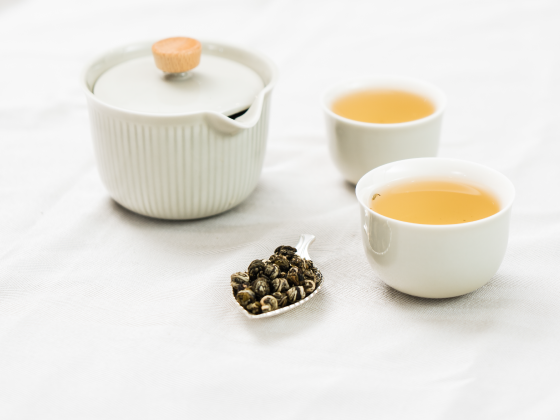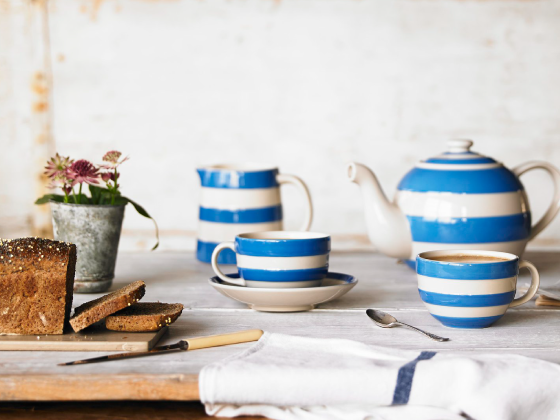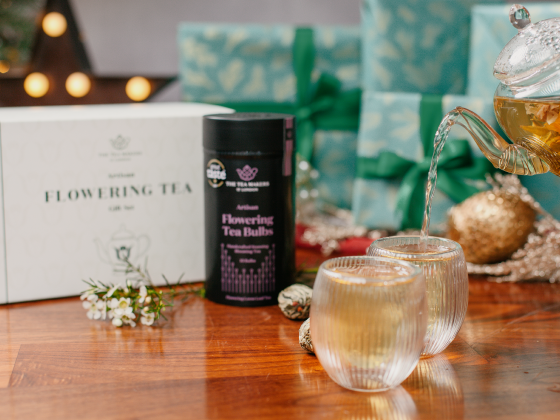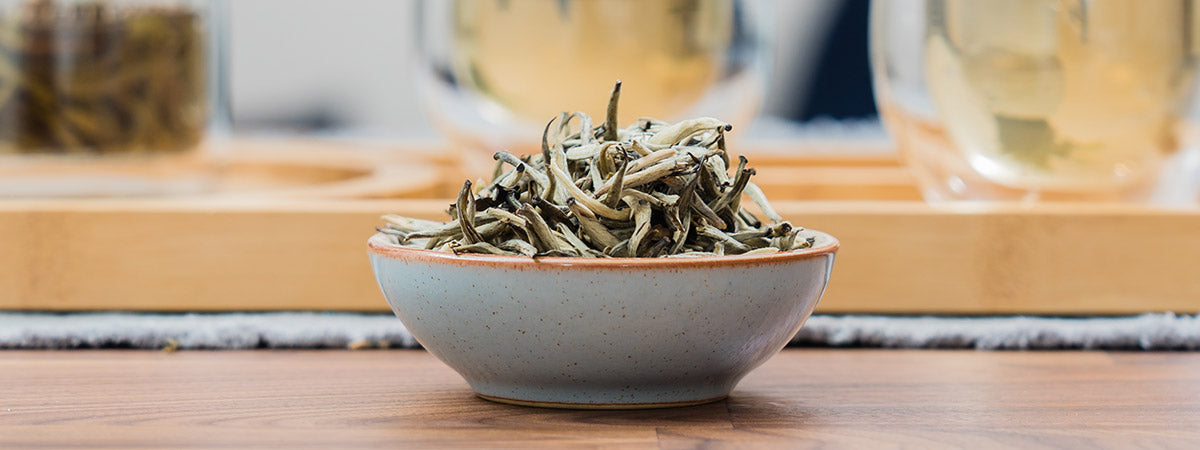Hailing from China, jasmine tea has become a popular brew all around the world. Made by combining green or white tea leaves with jasmine flower petals and buds, it offers all the health benefits associated with green tea, plus more. Keep reading to find out more about jasmine tea and learn seven ways it could help your health.
Is jasmine green tea different from regular green tea?
Jasmine green tea is made using green tea leaves, with the addition of jasmine blossoms. Because of this, you’ll taste the subtle, grassy undertones usually found in green tea, plus the summery, floral flavour of jasmine in your cup.
Does jasmine green tea contain caffeine?
As with all green tea blends, jasmine tea contains is a naturally low-caffeine drink. It still has about 25mg of caffeine per cup, which is half as much as a cup of black tea, or 75% less than a coffee.
How do I make jasmine green tea?
The best way to make jasmine green tea is with water that has been boiled and then cooled a little. Aim for about 80°C — the optimum temperature to draw out the subtle flavours of the tea, without scorching or turning it bitter.
Leave the tea to steep for about 2-3 minutes before removing the bag or leaves. Any longer and you may risk a bitter brew.
As with other green teas, there’s no need to add milk to your cup of jasmine. If you like, you can try a spoonful of honey to enhance the sweetness.
Is jasmine green tea good for me?
Jasmine green tea is higher in antioxidants and vitamin C than other teas. This is down to the way it's made (which is the same process plain green tea leaves[1] go through). As well as this, the jasmine flowers themselves bring some additional benefits to the table.
Combine the two and you’ll find that jasmine green tea can help your health in several ways:
1. Give you an energy kick
Switching from your usual cup of coffee to jasmine green tea could help improve your energy levels. It will lower your caffeine consumption enough to promote better sleep, while still giving you a hit of energy and helping you stay alert.
2. Can help you relax
The aroma of jasmine green tea goes hand-in-hand with the benefits of sipping on a warm drink to soothe and calm your nerves.
Inhale the scent of jasmine and you’ll find yourself instantly relaxed; the smell has been shown to improve mood and help relieve stress. Combine this with the tea’s sweet flavour, which further promotes relaxation, and you’ll be chilled out in no time.
3. May help prevent some cancers
Some studies have shown that green tea can slow the growth and spread of some types of cancer cells in the body. It can also reduce tumour size. This is likely down to the high levels of antioxidants found in jasmine green tea, which fight cancer-causing free radicals.
4. Can slow ageing
Jasmine green tea is great for your skin. Naturally occurring polyphenols are a powerful tonic for skin damage and pigmentation. Sip on two to three cups a day and you could see a reduction in fine lines and a better complexion overall.
5. May strengthen your immune system
The all-powerful antioxidants in jasmine tea can help support your immune system by fighting bacteria and infections. As well as this, the tea has anti-inflammatory properties, so it can help reduce pain and prevent general damage to your body.
6. Can keep your heart healthy
High oxidised LDL (bad) cholesterol is one of the main causes of strokes, blood clots and heart attacks. But antioxidant-rich jasmine tea can help keep stop oxidation, bringing levels of cholesterol down in arteries and veins. This means less inflammation, more oxygen pumping to your heart, and a generally healthier system.
In fact, studies have shown that people who drink 3 or more cups of green tea each day could reduce their risk of heart disease by about 21%.
7. Boost brain function
The small amount of caffeine in jasmine green tea plays a big part in its potential to improve brain function.
Caffeine encourages your brain to release mood-enhancing chemicals like serotonin and dopamine. Combined with its stimulating effect on the nervous system, this leads to you feeling more alert and can improve your short-term memory.
When should I drink jasmine green tea?
Jasmine green tea is the perfect drink to enjoy throughout the day. The low levels of caffeine mean it can give you a boost in the morning or a gentle pick-up in the afternoon. We’d steer clear of having a cup as it gets closer to bedtime, though.
This particularly type of green tea goes well with food too; the Chinese have been serving jasmine tea as part of their banquets for hundreds of years. It tastes equally good alongside breakfast as it does a sandwich at lunch. However, if you’re low in iron, wait at least an hour after eating to drink jasmine tea as it can reduce the absorption of the mineral.
To get started with jasmine green tea, choose from our award-winning blend in either loose-leaf or teabag form. If you’d like to get some of the benefits of green tea without the jasmine taste, why not explore our full range of plain and infused green teas. Alternatively, check out our full range of Chinese tea for a holistic view of the region.










3 comments
Patricia Jones
Dear Teamakers – very informative coverage of green Jasmin tea – thank you. Actually I never liked the taste of the Japanese green tea, but having now tasted the combination with jasmine flowers, I can’t get enough of it!
Kind regards
Patricia Jones
Dear Teamakers – very informative coverage of green Jasmin tea – thank you. Actually I never liked the taste of the Japanese green tea, but having now tasted the combination with jasmine flowers, I can’t get enough of it!
Kind regards
Patricia Jones
Terry Buie
Would like to buy a bag of tea
Would like to buy a bag of tea
Brad
Green tea is also good for inflammatory diseases such as arthritis and gout due to THE antioxidant epigallocatechin-3-gallat (EGCG). Various stufies have shown EGCG protects joints and tissues by lowering the immune system’s production of certain molecules that might lead to inflammation and joint pain. A good article on this can be found here http://beatgout.org/is-green-tea-good-for-gout/
Green tea is also good for inflammatory diseases such as arthritis and gout due to THE antioxidant epigallocatechin-3-gallat (EGCG). Various stufies have shown EGCG protects joints and tissues by lowering the immune system’s production of certain molecules that might lead to inflammation and joint pain. A good article on this can be found here http://beatgout.org/is-green-tea-good-for-gout/